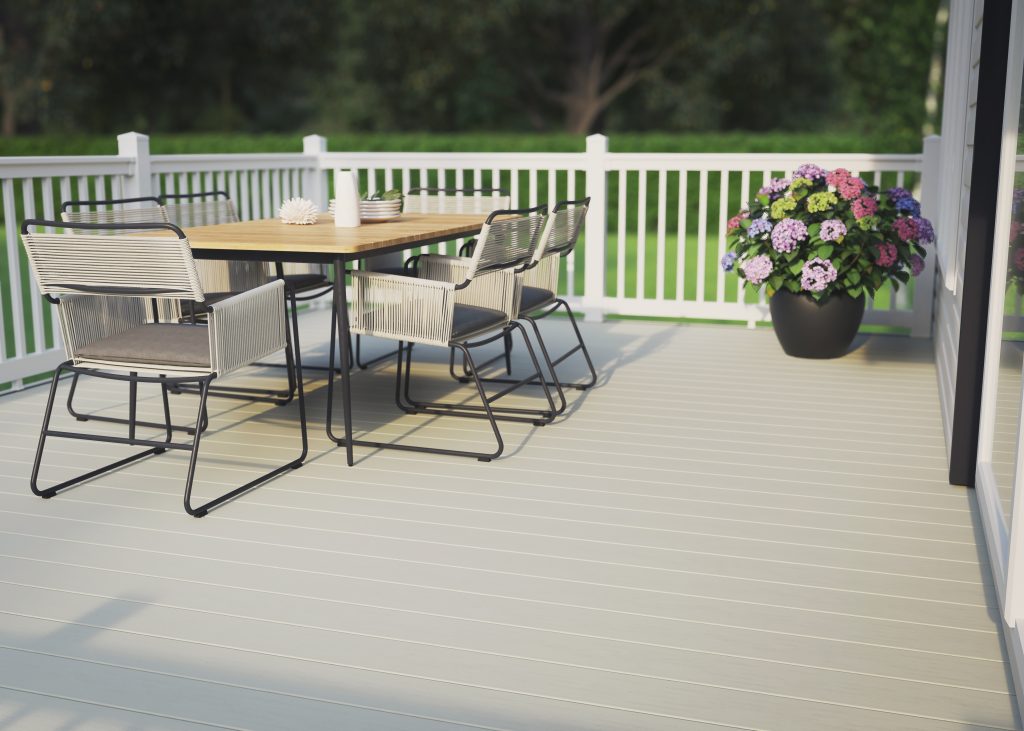PVC vs PVCu vs PVCue
Our DekBoard decking boards are manufactured from rigid PVC, a strong, durable material that is designed to last. However, there are many different acronyms that our industry uses to describe this material. PVC, PVCu, uPVC and PVC-u are just a few. We’ve asked our experts to provide an insight into the different terms to clarify and help us better understand if there really is a difference between PVCue, PVCu and PVC Decking.
What is PVC?
PVC stands for Polyvinyl Chloride, a synthetic polymer of plastic. It was discovered completely by accident in 1872 by German chemist Eugene Baumann. After leaving a container of vinyl chloride in sunlight, the polymer appeared as a white solid material in the container. Although he noticed the potential of this material, it wasn’t until 1926 that Waldo Semon and the B.F. Goodrich Company began to plasticise it.
PPVC is quite a rigid material but can be made more pliable by adding plasticisers. This flexible form of PVC is used in products such as hosepipes, insulation, shoes, and garments. However, this is not suitable for the decking industry, as we need the material from which we manufacture our decking boards to be stiff, strong, and durable. Therefore here at DekBoard, we use unplasticised polyvinyl chloride. However, this can also be called PVC, PVCu and uPVC! So what does it all mean?
Is it uPVC or PVCu?
The basic answer is that there’s no difference! Both terms refer to unplasticized polyvinyl chloride. The only notable difference is where, and by who, the term is used. uPVC is the common term used by homeowners in the UK. PVCu is predominately used in Europe, where spoken word places nouns before adjectives, and fell into favour amongst installers, fabricators, and suppliers.
This is also the same for u-PVC or PVC-U, where the inclusion of the ‘dash’ has no real significance.
What is PVCue?
PVCue stands for Polyvinyl Chloride unplasticised expanded and is more commonly known as Cellular PVC. Cellular PVC has a rigid expanded foamed PVC sheet or profile, with a smooth gloss hardened finish on both sides. Its foamed core creates a lightweight but extremely durable profile. This now commonly uses the co-extrusion process to add a thin, durable outer skin of rigid PVC to benefit both performance and finish – including pigmentation for colour options.
We hope that we have shed some light on the differences between PVC, PVCu, and PVCue but if you have any further questions do not hesitate to contact us and talk to one of our friendly experts.
